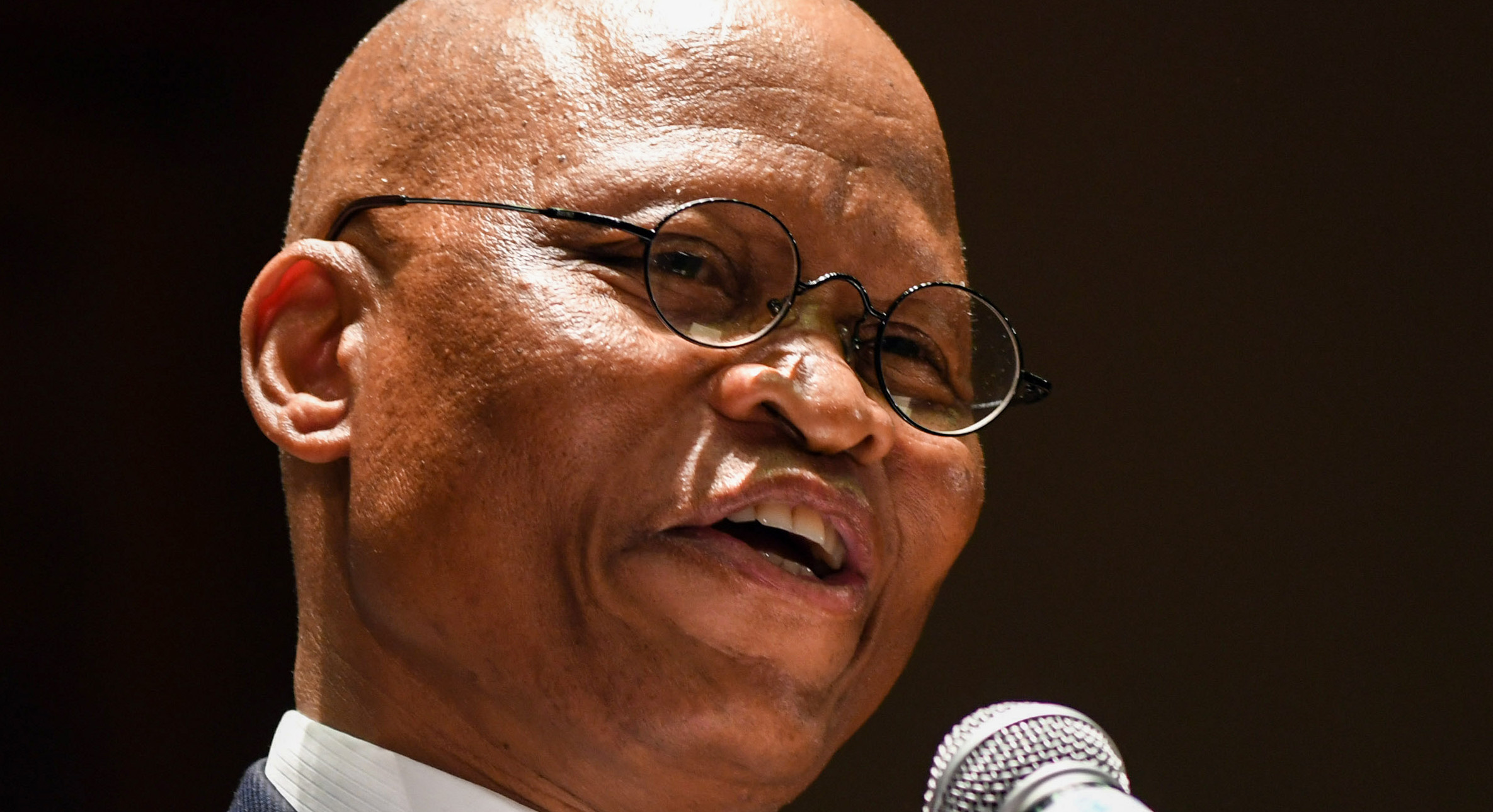Retired Chief Justice Mogoeng Mogoeng believes it is time for South Africa to develop a public funding model that would ensure that government and political parties owe their allegiance to taxpayers rather than private funders.
This, according to Mogoeng, was a price worth paying to avoid a democratic order that produces “a government of the rich, by the rich and for the rich”.
“Who facilitates a politician’s upward mobility is a question that must necessarily and seriously exercise our minds for the biting truth is, there is no free lunch in this world.
“Private funding of individuals and of political parties themselves is in my view an investment that is expected to yield very handsome returns as soon as beneficiaries thereof rise to positions of sufficient authority to deal out favours at tenders,” he said.
Mogoeng made the remarks on Wednesday night at the inaugural SAfm lecture titled: “Constitutionalism and upholding the rule of law in South Africa”.
Ramaphosa in firing line
In his address, Mogoeng did not mince his words as he criticised President Cyril Ramaphosa’s failure to disclose sources of his almost R500-million campaign to become ANC president and how the money was spent to win the top spot at the party’s elective conference at Nasrec in Johannesburg in December 2017.
Read more in Daily Maverick: How Ramaphosa’s campaign spent R400-million — and why it matters
This, according to Mogoeng, was a consequential failure: “sure albeit unintended recipe for corruption under the cover for the facilitation of a well-structured mechanism or legal stratagem having the inescapable effect of evading accountability”.
“What the president self-evidently did, was to undermine and to frustrate the efforts of that (Public Protector) office to fulfil its constitutional obligations, by not just withholding the truth, but deliberately asserting the opposite of it… Lest we forget, we are not dealing here with an average citizen, but with the bearer of specific and frighteningly weighty constitutional responsibilities; who is expected and required to lead by example and be above reproach.
“The President therefore had the duty to know, if he did not already know who was funding his campaign and to disclose that personal benefit compositely as a benefit from the CR17 campaign as an entity or more appropriately from each donor with a specified amount.
“Why? So that Parliament and the public could know who was helping or had helped him to perform better than his competitors and enabled him to become ANC president and a few months later, President of the Republic,” Mogoeng said.
The country already has in place some form of public funding model in the form of the Political Party Funding Act which came into effect in April 2021. The legislation requires that all parties declare and provide details of all donations, loans, membership fees and income, as well as lists of bank accounts into which this money is deposited, to the Electoral Commission of South Africa (IEC).
The legislation has however met some resistance, with some political parties failing to meet deadlines for disclosure and some not declaring at all.
Read more in Daily Maverick: South African political parties were supposed to submit financial statements to IEC by 30 September – but many haven’t
“The reality is, private funders do not just thoughtlessly throw their resources around. They do so for a reason, and quite strategically,” Mogoeng added.
Mogoeng said he was not oblivious to the fact that some private funders allocate their resources to independent candidates or party policies because they genuinely believe in their policies or mandate — be that as it may, Mogoeng continued, some did so with the hopes of influencing policy decisions and advancing personal interests.
Rolling blackouts whitewash
Mogoeng also took a swipe at the government’s inability to put an end to the ongoing rolling blackouts crisis in the country.
“Why does it look like we are failing or unwilling to resolve the all-important Eskom issue? After all, it has been many years since those who were allegedly corrupt and destroying Eskom have been relieved of their duties, the same group that actually ended load shedding at some point.
“Besides, this is not a new problem, and our future, our economy and credibility as a nation depends on the functionality and efficiency of Eskom.”
During his tenure as chief justice, Mogoeng often made headlines for his often publicly stated, religious beliefs. In 2022, he started speaking publicly about his aspirations to become president, saying he believed it was his calling.
In July, he was quoted as saying he had been approached by multi-billionaires — whose names he did not disclose — to form his own political party, but declined the offer. DM





